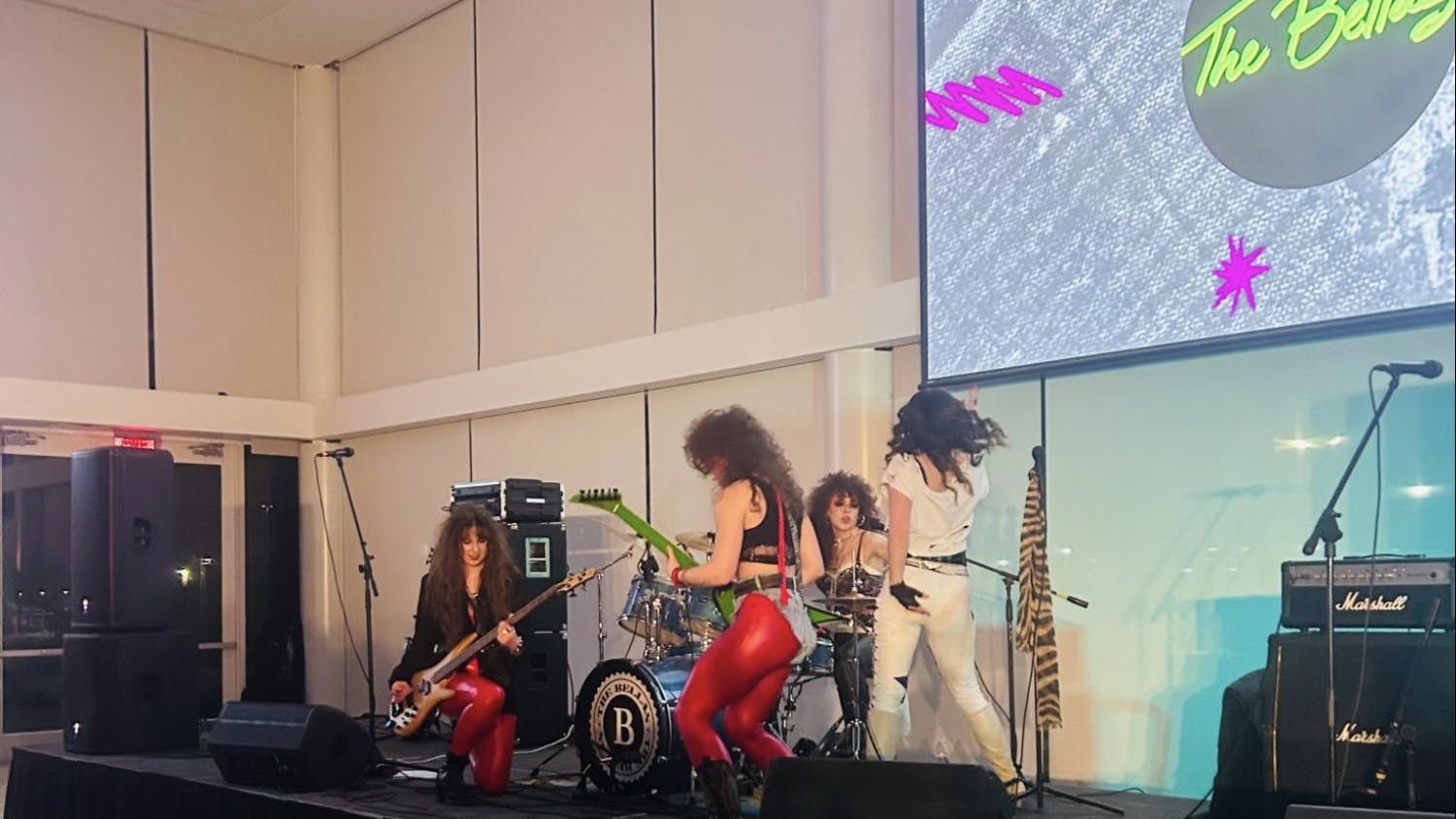By Lake DiStefano
Staff Writer
At the end of an intimate connection, there is little to find comfort in, other than that fickle misery. You know it’s impermanent, so maybe that’s why you cling to it. Or, in the case of Conan Gray on his third studio album, you write songs about it.
“Found Heaven,” Gray’s most recent studio effort, is a drastic pivot away from the ballad-driven songwriting of his last two albums into bright, 80s-influenced synth-pop. Acoustics are traded for disco-beats and hushed vocals become belting choruses. It’s a development of sound so jarring that even his previous skeptics were unable to deny their curiosity.
Lyrically speaking, the record dabbles in charting the course of a passionate kind of love–the kind that burns bright fast, and surely doesn't last. It makes sense then, why the sonic palette of the 80s had such a heavy influence on this project.
The 80s was a time of glossy loves and quiet burn-outs. It’s a lifecycle replicated in the narrative quietly perched beneath the pop aspirations of the tracks. Even the love songs are punctuated by a foreboding undercurrent as to how the story ends.
The album begins with the title track, as we are welcomed into this world of neon-lovers and crowded dancefloors. Sonically speaking, it's on the slower side, with most of its mileage being simply the mood it sets. It reminds me of the opening to an 80s horror or sci-fi movie, as Gray sings about how someone isn’t sinful for falling in love, and how they’ve “Found Heaven” in a lover.
Immediately following is the first single off the record, “Never Ending Song.” Interestingly, the perspective this song adopts is of a lover scorned–someone who has already lost whatever connection they may have had. It’s more of a fun track, with some insanely catchy hooks, despite the bitter annoyance depicted in the lyrics.
Track three is the album highlight, “Fainted Love.” It’s a lyrically simple track about a one-sided love, but the production is sublime, as the chorus blooms then retracts in that 80s style.
“Lonely Dancers” was another of the pre-released singles, and is notable for its copious amounts of David Bowie influence. Everything from the plucking synths to the deep cadence of his vocals all harken back to the glam rockstar in a tasteful manner.
The fifth track, and album centerpiece, is “Alley Rose.” This is the breakup song that the album has been hinting at the whole time, as Gray indulges in a crashing chorus that’s more than a little inspired by Elton John. It’s a stellar piece, with the ad-libs in the final chorus really cementing it as a highlight on the record.
“The Final Fight” and “Miss You” continue the story with a more mellow and atmospheric production, as Gray sorts through all the emotions common in the immediate fallout of a relationship. Toxic thoughts, last pleas, and quiet lamenting allows these two to stand out among the more high-energy tracks.
“Bourgeoisieses” is the only real outlier on the record. Purposely misspelled, this song is a satirical takedown of the stuffy upper-class, as Gray jokingly declares he wishes to be a part of them. It’s a bit too silly and detached to really deserve a spot on the otherwise concise tracklist, but admittedly the production work is still excellent.
“Forever With Me” is another lull on the record as, despite still being good, it takes a bit too long to really get going. Gray finally admits that he’ll forever love his ex, and the final chorus almost reaches a sort of Queen sound. But if that was the attempted influence, it fails due to the production being a bit too glossy to authentically achieve that kind of a sound.
The loud and thumping production returns full force on “Eye of the Night,” as Gray protests how despite his lover long being gone, their influence and presence is still haunting him everywhere. It’s a simple song lyrically, but the chorus is catchy enough to get away with the otherwise tired concept.
“Boys & Girls,” “Killing Me” and the final track “Winner” cap off the record with more of those high-octane songs seen in the first half. There’s some retreaded ground lyrically, but they leave the album on a high note, which redeems most of the mediocre middle.
While most artists today will imitate the 80s, Gray innovates that sound when reinventing his own. He pays tribute to the many artists who pioneered the genre long before him, and uses that previous foundation to launch him into this new sound.
But between the TV static and chromatic synths of Gray’s newest record, there lies a genuine heartbreak — hidden from view, and only revealing itself to those who interrogate the work.
It’s the question that Gray grapples with, while prancing around in his 80s wonderland.
Is falling in love worthwhile, when all it does is teach you what you are without?
Little salvation is offered in the text itself, and perhaps that is what is most compelling to me. The only resolution given is that of Gray’s own internal strife. That existential question remains underpinned, yet unanswered.
If falling in love is how he “Found Heaven,” just how holy is that paradise?







